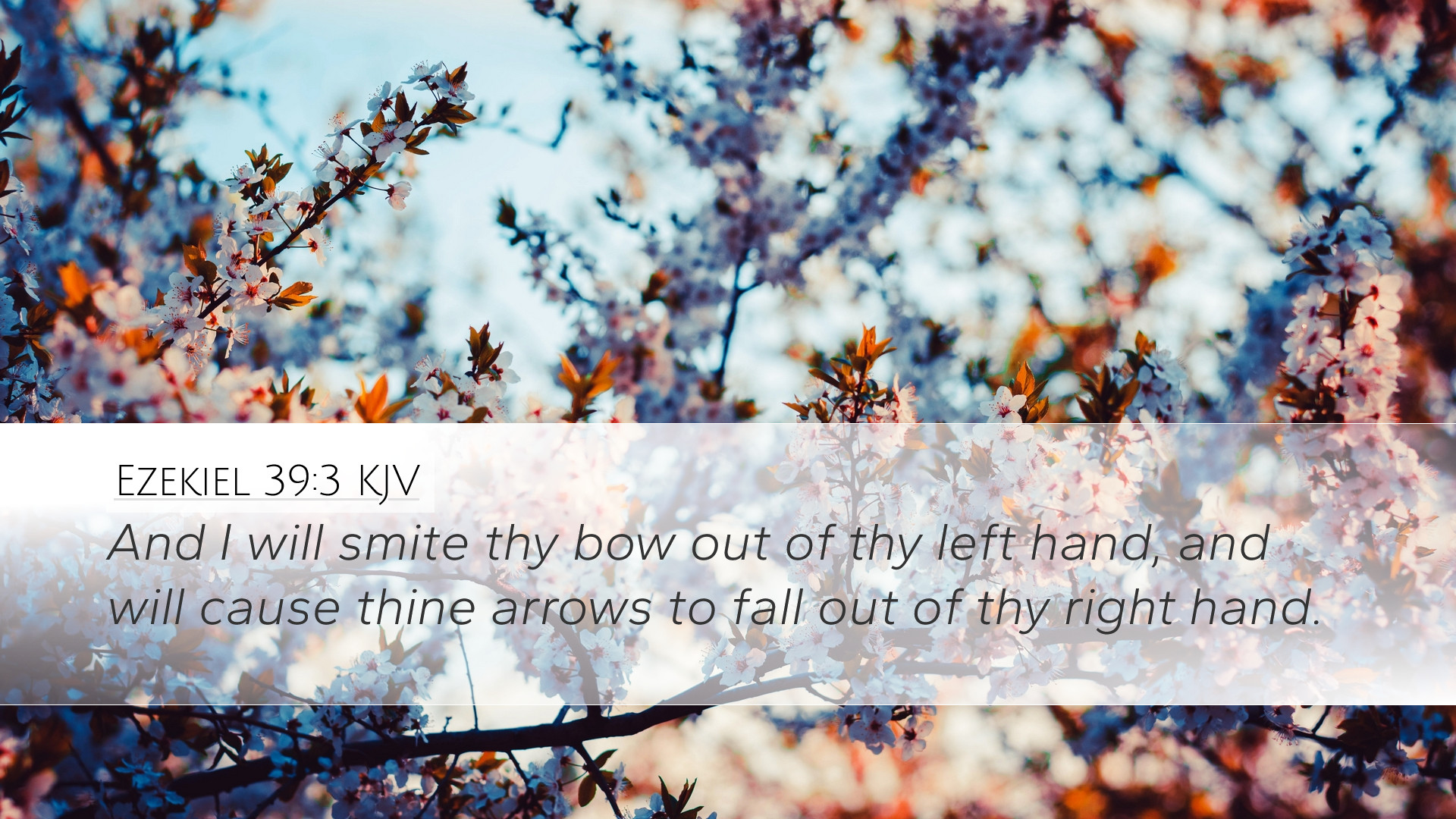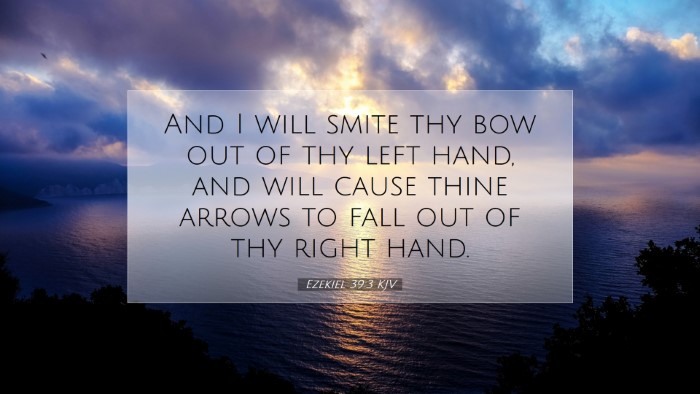Ezekiel 39:3 - Commentary and Insights
Verse: "And I will smite thy bow out of thy left hand, and will cause thine arrows to fall out of thy right hand." (Ezekiel 39:3, KJV)
Contextual Background
This verse is situated within a prophetic narrative depicting Israel's future restoration and the defeat of its enemies. Ezekiel, a prophet during the Babylonian exile, often communicated visions revealing God's judgment and promises for His people. In chapters 38-39, he discusses Gog, representing hostile nations, and God's divine intervention in their annihilation.
Key Themes
- Divine Intervention: God actively participates in the affairs of nations, wielding power to defend His people.
- Judgment of Enemies: The prophecy outlines the decisive defeat of adversaries, illustrating the futility of their attacks against God's chosen.
- Restoration of Israel: This segment anticipates a future where Israel is not only defended but also restored, highlighting God's faithfulness.
Commentary Insights
Matthew Henry
Henry emphasizes God's sovereignty in battle and His commitment to protecting His people. The imagery of God smiting the bow and causing the arrows to fall reveals a clear metaphor for His overarching power. It underscores the futility of military might when faced with divine intervention. Henry notes, "God's arm is made bare for the destruction of His enemies, and their weapons are turned against them." This serves as a potent reminder to believers that ultimate victory belongs to God, not human ingenuity.
Albert Barnes
Barnes focuses on the symbolism of weaponry in the verse. He explains that the bow and arrows are instruments of destruction and warfare. In this context, Barnes interprets God’s action as not only a literal disarmament of the enemies but also as a spiritual metaphor illustrating how God takes away the strength of those who rise against His people. He delineates, "God's intervention renders the enemies incapable of waging their intended war," emphasizing the critical nature of reliance on God over military power.
Adam Clarke
Clarke expounds on the specific imagery of the left hand and right hand, indicating a comprehensive disarmament. He notes that the left hand symbolizes power and might, while the right hand is often associated with strength and authority. Thus, God's action in striking the bow from the left hand and causing the arrows to fall from the right hand suggests a complete overthrow of the enemies' capabilities and intentions. He affirms that "the greatest preparations for war shall come to nothing when opposed to the will of God," demonstrating the futility of human efforts against divine authority.
Theological Implications
- God's Control Over History: Ezekiel 39:3 serves as a theological reminder of God's overarching sovereignty in historical circumstances. Believers can find reassurance that, despite seemingly insurmountable challenges, God is in control.
- Victory Through Divine Intervention: The disarming of enemies signifies that true victory is not solely dependent on human actions but on God's promise to intervene on behalf of His people.
- Assurance of Deliverance: This verse also provides comfort for the faithful, affirming that God will protect and deliver His people, reinforcing the theme of redemption prevalent throughout Scripture.
Practical Applications
For pastors, students, and theologians, the insights from Ezekiel 39:3 can translate into practical wisdom:
- Encourage Dependence on God: In times of trouble, remind congregations of the importance of placing trust not in their own strength but in God's power to act.
- Preach Divine Sovereignty: Use this verse to stress that God has the ultimate authority over all nations and will thwart the plans of the wicked.
- Foster Hope: Highlight the message of hope encapsulated in God's deliverance. Encourage believers to remain steadfast, knowing that God is their protector and defender.
Conclusion
Ezekiel 39:3 encapsulates profound truths about God's power, sovereignty, and care for His people. The combined insights from Matthew Henry, Albert Barnes, and Adam Clarke provide a rich, multifaceted understanding of the text, making it applicable for theological discourse and everyday faith. As believers reflect on this powerful verse, they are reminded of the assurance that comes from knowing God actively engages in the affairs of humanity, ultimately safeguarding those who are His.


